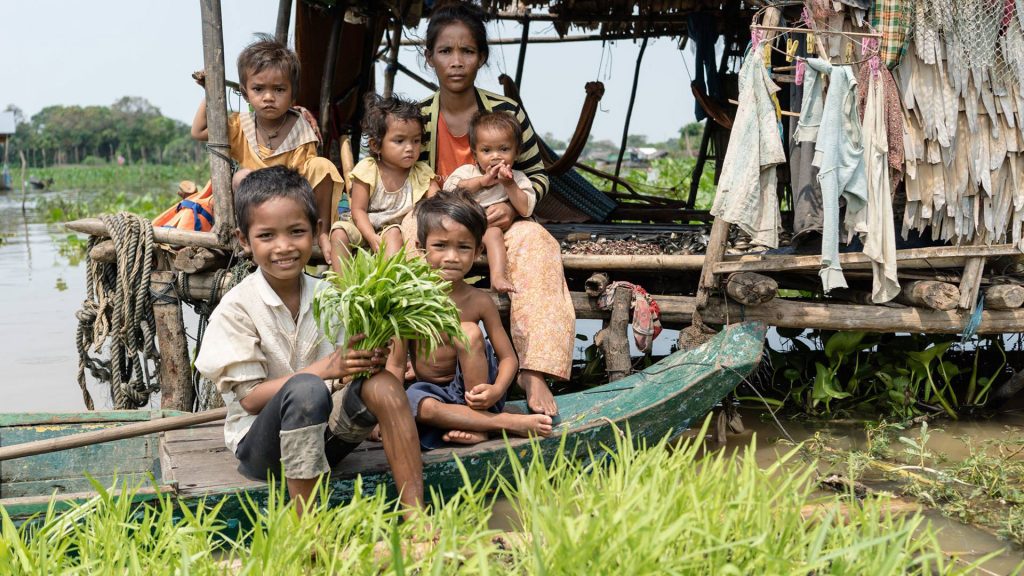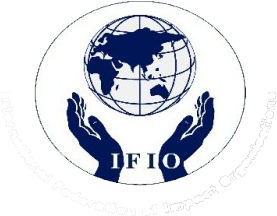Floating veggie garden at the Tonle Sap Lake of Cambodia
The Lake Clinic (TLC) has surveyed the state of nutrition for children and their families in the different villages of the Tonlé Sap lake in Cambodia throughout 2013 and 2014. This was done through examinations and clinical work. The results make for a depressive picture; 2/3 of all children in school age are malnourished, whereas as many as 40% are inflicted with growth restriction, meaning the body is not developing as it should. This, along consequences like impaired immune system and weakened ability to learn, may be something these children have to live with for the rest of their lives.
TEXT: MARLENE KARLSEN
Cambodia is a small country with many people, lots of whom are residing in the floating villages on South-east Asia’s largest freshwater lake; Tonle Sap Lake. Many of these villages are tucked away in isolated areas, where the average diet consists of rice, a bit of fish (for those who can afford it) and salt. The lack of cropland makes it difficult for the already destitute population to procure vegetables.
After inspiration from Bangladesh Impact Norway has cooperated with TLC, KIDS and Global Roots to initiate a pilot who’ll arrange floating gardens in Moat Klah on the Tonlé Sap lake to prevent malnutrition. These floating gardens consist of bamboo batons and hyacinths – an aquatic plant without any commercial or nutritional value – but who threaten the conveyance on the lake, and help cover up areas good for fishing.
The approach is easy; you build a frame of the bamboo batons and tie it together with a rope. Thereon, you fill this with water hyacinths until it becomes about 1 meter thick (approximately 8-10 layers). The hyacinths are stomped and beaten down to ensure as compact a structure as possible, thus enabling it to rot faster. After about three weeks the structure will have decomposed and you can start sowing and reaping vegetables as you would on mainland. This is a highly cost-efficient and productive way of getting fertile soil for villages that earlier wouldn’t have access to this.
Through the year of 2014, employees of TLC have taught the students about right nutrition and its importance, as well as offering brief cooking classes. This has helped build the foundation for the next step, where the students get to create floating gardens from scratch. During this process, they learn how the use of simple, natural material can produce fertile soil and the possibility of growing vegetables. By directing this project towards the children and turning the teaching and knowledge into something fun, all though it’s of critical necessity, we are placing the future in their hands. Maybe they will pass it on to their parents at home, and growing a vegetable garden can become as natural a food supply as fishing. The effect will then turn into a long term change in eating- and nutritional habits which can last for generations.
The goal is for the relatively easy and cheap source of healthy and nourishing food to improve children’s health and future through proper nutrition. Hopefully, this will result in higher attendance at school, and less time at The Lake Clinic!





